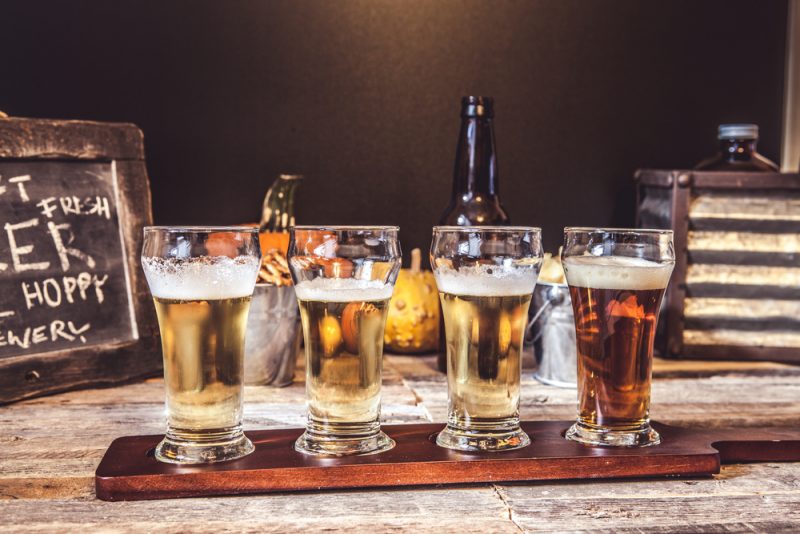Why It’s Important For Craft Brewers to Register Trademarks

There are over 3,000 craft breweries in the U.S., with more cropping up just about every day. When even the bigger beer brewery conglomerates are changing their advertising styles to seem in tune with the craft beer mindset, it’s certain that a major trend is afoot. That increasing popularity, however, means an increasingly crowded marketplace, and with it, more competition for trademarks and naming rights, and an increased need for protection of brewery names and beer brands, both established and new.
A few tales of brewery trademark conflicts in the news lately perfectly illustrate the need for protection and establishment of legal rights. Whether it’s between one small brewery and another, or a case of a larger company attempting to exercise trademark leverage over a smaller one, these real-life examples show why it’s never a bad idea to have the protection of the United States Patent & Trademark Office for your craft beer. Let’s take a look.
This Colorado craft brewery became embroiled in a trademark dispute with a much larger alcoholic beverage producer over the word “Graffiti.” The smaller company went about everything the right way – registering a trademark for the word several years ago for use on a wine label and for other alcoholic beverages. Even so, the larger company began using the same word for a beer brand name, claiming that beer and wine were separate classes and distinct enough to prevent confusion. The smaller company felt differently and, according to the article, was assured that the law was actually on his side.
To this point, the smaller company – the owner of the trademark – has attempted to settle the matter out of court. If it turns out that the larger company doesn’t relent, the smaller company has given itself the best chance of success by registering the trademark. Without that registration, there would be a major burden of proof of prior use to get the larger company to cease and desist. For small craft breweries that rely on word of mouth and local traction to become successful, rather than advertising and wide distribution, that prior use would be exceedingly difficult to establish – there just may not be much evidence of it, like newspaper ads. With a registered trademark, there’s a concrete date and an implicit assumption of usage and ownership over the mark. Without it, it would have been very difficult for their case to even get off the ground.
In central New York state, two small, recently opened breweries have run into a similar type of trademark issue – one that may have been preventable. Both have been asked to change the names of their beer products by larger breweries – but size is not the issue here, priority based on sales of the beer is. As you’ll see in the article, there are some subtleties in each case, but the important takeaway is the significance of registering a trademark and researching the mark you intend to use before you begin selling product.
Had these smaller breweries gone through a trademark research phase – an early, critical component of the trademark application process – they would likely have realized the high chance that they would be in conflict with an existing, established mark. They would have been able to choose a different name at an earlier time, instead of having to go through the process of addressing the conflicts now, as an established business, and potentially having to change beer names that likely have reached some level of recognition among their audience. Consumers rely on recognition and recall when making buying choices, and that includes beer. To have to change the name of a product once it’s in the marketplace is a loss of time, money, and effort.
A Denver brewery that is about to change its name due to a dispute also ran into problems with the trademark research process. The owners were familiar with a national brewery with the same name that closed several years ago, but were not familiar with a regional beer using the name as well – protected under a federal trademark. That means that regardless of regional status, the name is protected nationwide. A more thorough trademark research process would have uncovered this conflict earlier, and again prevented the need to change a name after it’s been established in commerce and gained a level of consumer recognition.
Craft brewers often enter the industry more in the pursuit of passion than of money, and as such, can easily overlook some of the critical components of of brand protection — such as conducting a proper trademark search and filing a trademark application with the USPTO. That being said, ultimately, a craft brewer is running a business, and, no one running a business wants to expend time and money building a brand name only to find out it needs to change. These examples, as well as others currently ongoing, are indicative of the benefits of registering a trademark, and, the problems one can easily and quickly encounter when the trademark process is overlooked or delayed. The one silver lining? Most of the breweries involved seem happier to hash things out over a pint or two rather than through a long courtroom battle. But in order to protect your time, your effort, your passion, and your bottom line as a craft brewer, it’s still best to file a trademark application as soon as you get your business off the ground.
Do you need assistance with a trademark matter?
Contact an Attorney Today